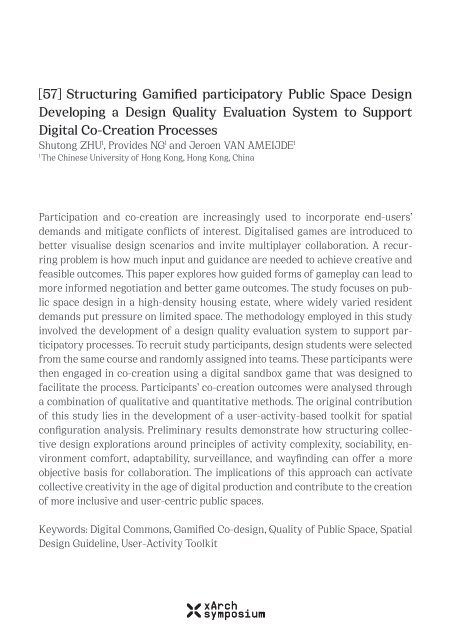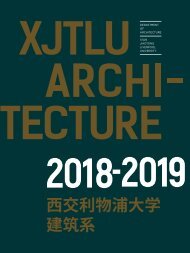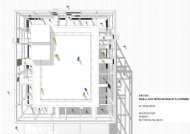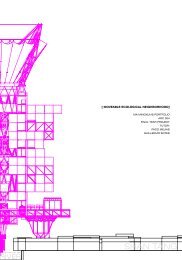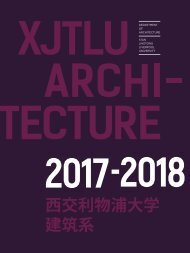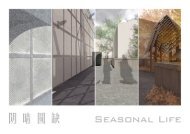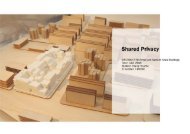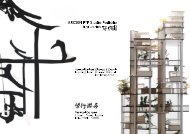231108_GDM_xArch_preprints
You also want an ePaper? Increase the reach of your titles
YUMPU automatically turns print PDFs into web optimized ePapers that Google loves.
[57] Structuring Gamified participatory Public Space Design<br />
Developing a Design Quality Evaluation System to Support<br />
Digital Co-Creation Processes<br />
Shutong ZHU 1 , Provides NG 1 and Jeroen VAN AMEIJDE 1<br />
1<br />
The Chinese University of Hong Kong, Hong Kong, China<br />
Participation and co-creation are increasingly used to incorporate end-users’<br />
demands and mitigate conflicts of interest. Digitalised games are introduced to<br />
better visualise design scenarios and invite multiplayer collaboration. A recurring<br />
problem is how much input and guidance are needed to achieve creative and<br />
feasible outcomes. This paper explores how guided forms of gameplay can lead to<br />
more informed negotiation and better game outcomes. The study focuses on public<br />
space design in a high-density housing estate, where widely varied resident<br />
demands put pressure on limited space. The methodology employed in this study<br />
involved the development of a design quality evaluation system to support participatory<br />
processes. To recruit study participants, design students were selected<br />
from the same course and randomly assigned into teams. These participants were<br />
then engaged in co-creation using a digital sandbox game that was designed to<br />
facilitate the process. Participants’ co-creation outcomes were analysed through<br />
a combination of qualitative and quantitative methods. The original contribution<br />
of this study lies in the development of a user-activity-based toolkit for spatial<br />
configuration analysis. Preliminary results demonstrate how structuring collective<br />
design explorations around principles of activity complexity, sociability, environment<br />
comfort, adaptability, surveillance, and wayfinding can offer a more<br />
objective basis for collaboration. The implications of this approach can activate<br />
collective creativity in the age of digital production and contribute to the creation<br />
of more inclusive and user-centric public spaces.<br />
Keywords: Digital Commons, Gamified Co-design, Quality of Public Space, Spatial<br />
Design Guideline, User-Activity Toolkit


